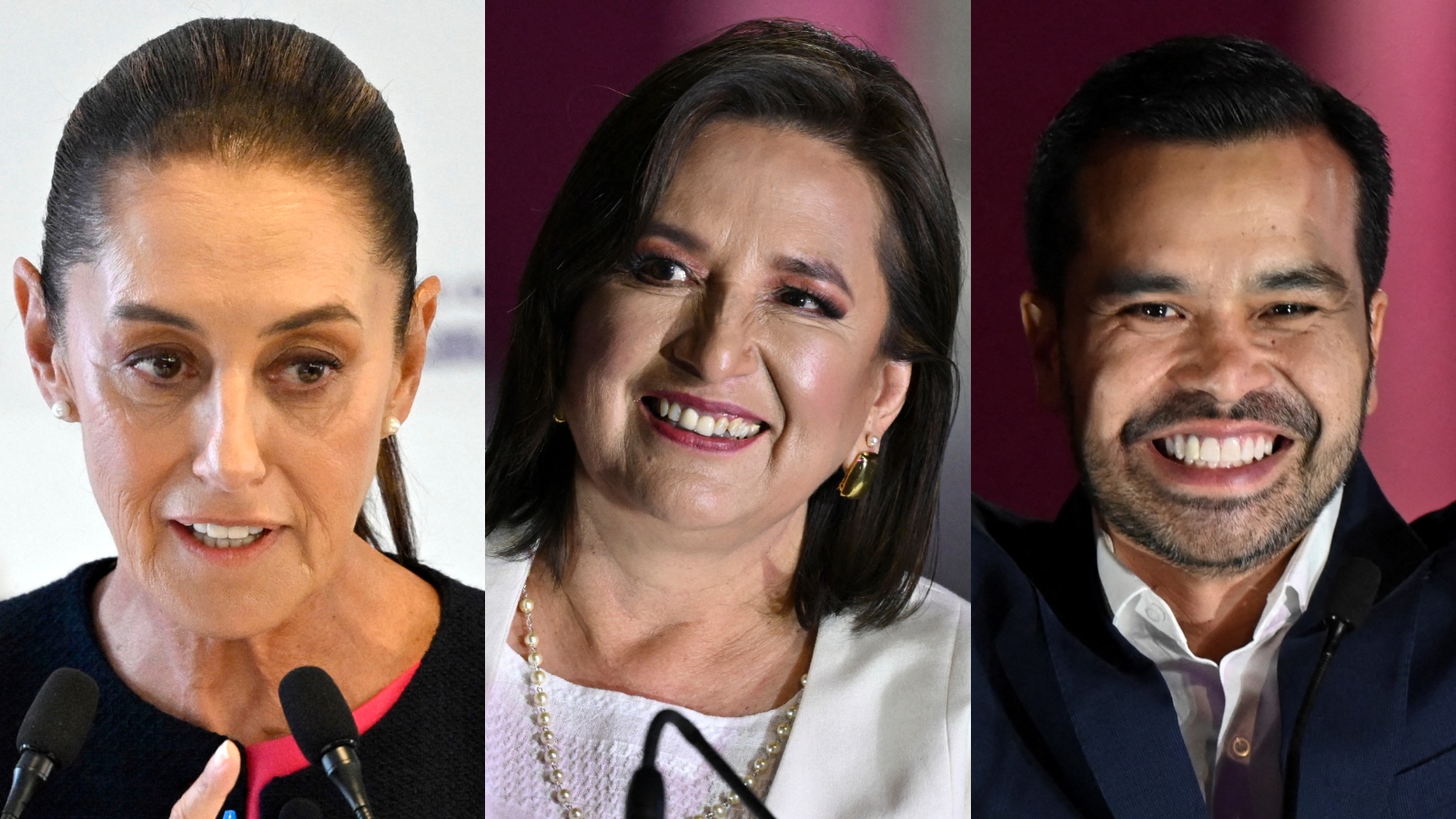Mexico Presidential Election: Sheinbaum Leading, But Race Tightens
As the final stretch of the Mexican presidential election approaches, the most recent polling data reveals a tight race among candidates. Claudia Sheinbaum, representing the Morena-PT-PVEM coalition, continues to lead in voter preferences, followed closely by Xóchitl Gálvez from the PAN-PRI-PRD coalition, and Jorge Álvarez Máynez of the Citizen Movement. Multiple surveys indicate Sheinbaum's significant, yet decreasing lead over her opponents.
According to a May survey from Mitofsky, Sheinbaum holds a 48.9% voter intention, a drop from her 51.4% in April. Gálvez has seen a rise to 28.1% from 26.7%, while Álvarez Máynez increased from 9.3% to 10.3%. Additional data from De las Heras Demotecnia's May survey supports Sheinbaum's lead at 64%, though down from 67% in April; Gálvez decreased to 28% from 30%, and Máynez improved to 8% from 3%.
Survey trends suggest that the race is becoming more competitive. A Parametric survey in April also indicated Sheinbaum's lead at 51%, down from 61% in March, with Gálvez rising to 36% from 31%, and Máynez doubling his support from 5% to 10%. Such fluctuations reflect the dynamic nature of voter intentions as election day nears.
Sheinbaum remains a strong favorite with an estimated 92% chance of winning, according to EL PAÍS' prediction model. Despite Gálvez's 8% chance, historical polling errors and uncertainties maintain a slim opening for her. This model aggregates recent surveys, integrates expected uncertainties, and simulates 20,000 elections to provide these probabilities. Similarly, Metaculus and Polymarket forecasting communities respectively estimate Sheinbaum's victory at 89% and 90%, with Expansión predicting a 98% chance.
These elections are noted as the biggest in Mexican history with 20,708 positions at stake, including the presidency, 500 deputies, and 128 senators. The ongoing violence and security concerns related to criminal gang disputes and drug routes to the U.S. could influence voter turnout. Political analyst Lorena Becerra warns that fears of violence may deter voters, impacting the election's outcome.
- To ensure credible election outcomes, the National Electoral Institute (INE) has been actively overseeing the electoral process. This includes monitoring campaigns and addressing any irregularities. With over 99 million eligible voters, these elections represent a crucial democratic exercise for Mexico.
- Experts emphasize the importance of voter turnout, noting that every vote can significantly impact the election results. The candidates have been focusing on key issues such as economic development, social equality, and national security to garner support and address voters' pressing concerns. Each candidate's strategy and ability to resonate with the electorate will be pivotal in the final days leading up to the election.






